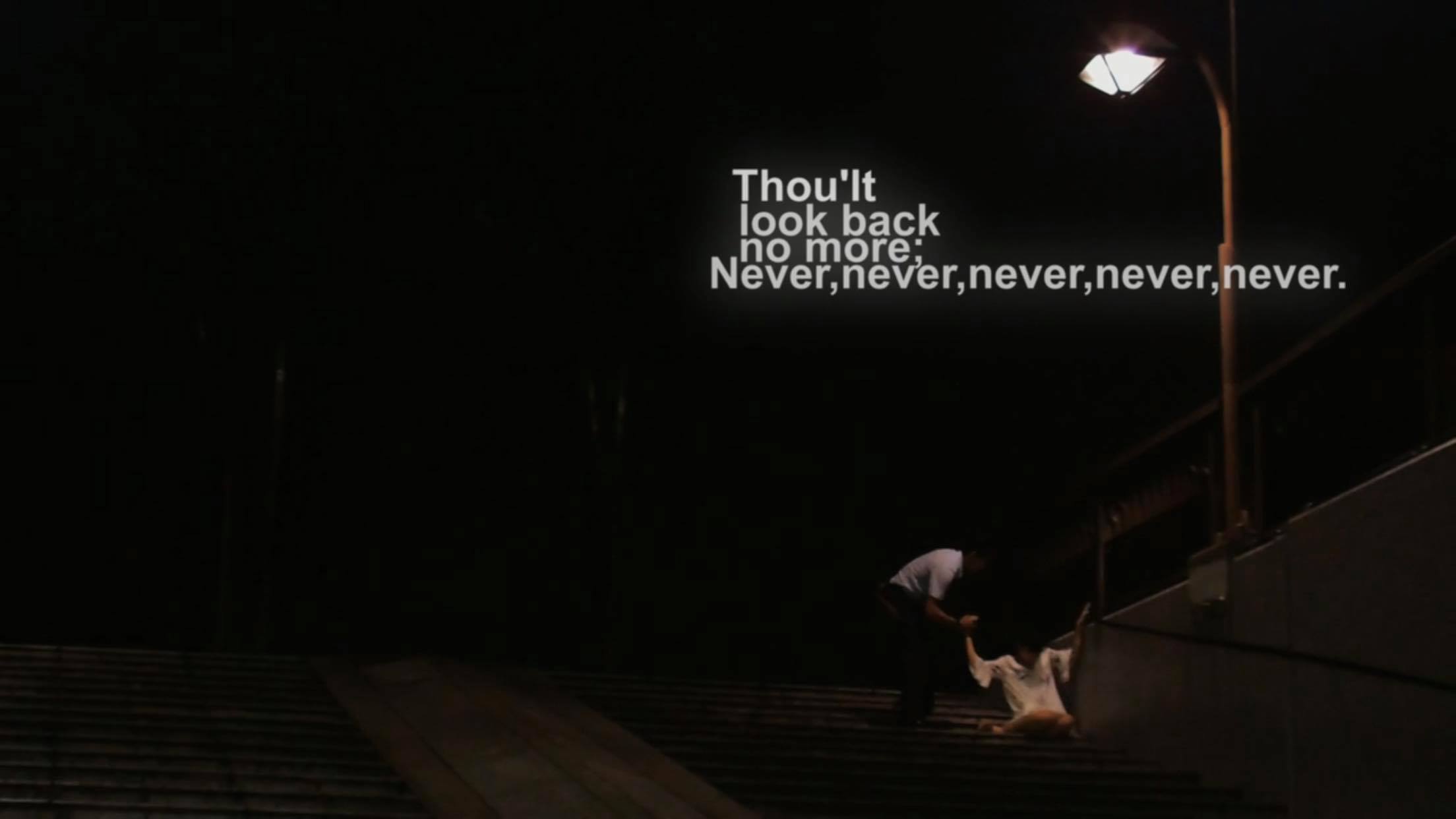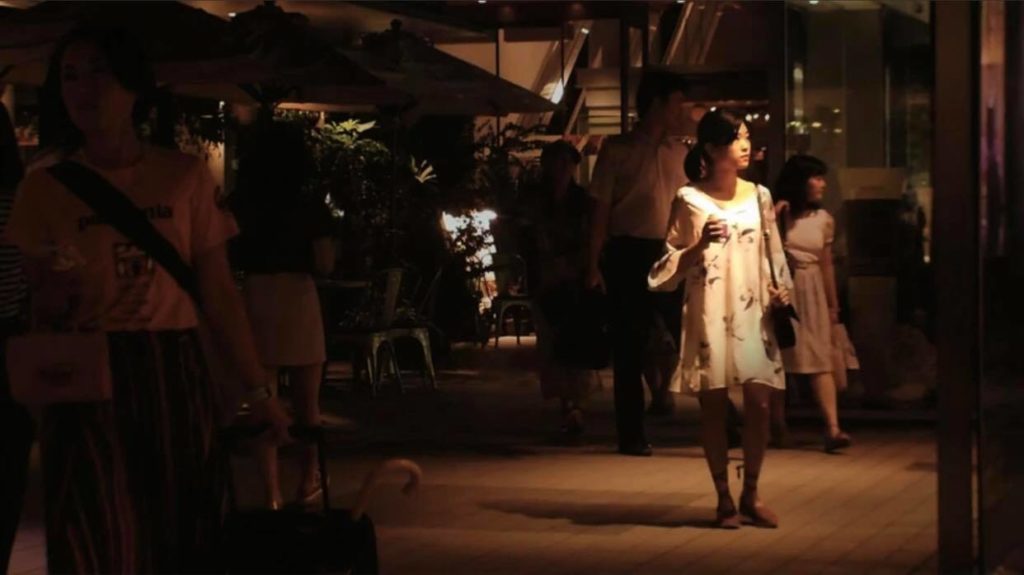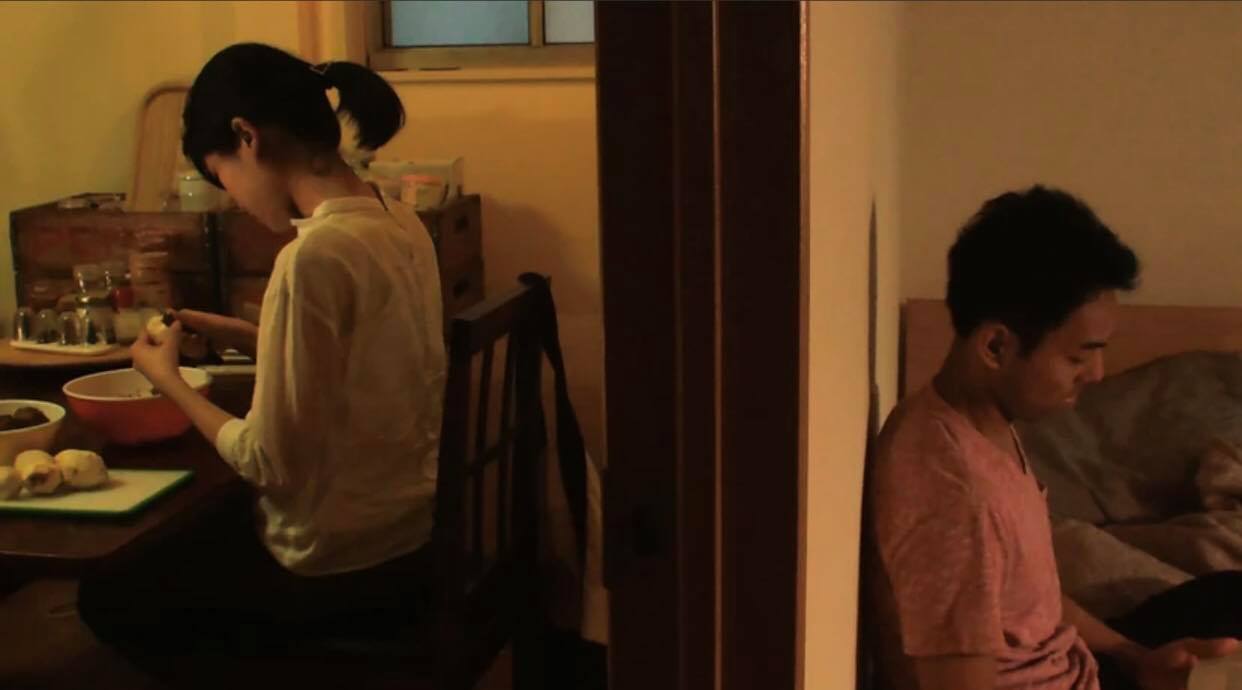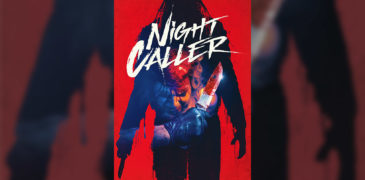
For years, film festivals have allowed passionate film viewers the ability to enjoy and celebrate the art of film-making from all around the world. In a lot of cases, well-established filmmakers will present their newest flicks at these events, but there are also many instances where unknown creators are given the chance to do the same. When it comes to Japan Film Fest Hamburg (JFFH), which we have been covering extensively and can be attended from the comfort of your home (more info on that will come later), we are given the best of both worlds. Names that are familiar to most J-cinema fans such as Koji Shiraishi (Noroi, A Beast in Love) and Yoshihiro Nishimura (Tokyo Gore Police, Tokyo Dragon Chef) will instantly catch your attention, but I was personally equally curious to check out the work of those whose names I was unfamiliar with. It this case it’s Takushi Ueta, and as it turns out, Thou’lt Look Back No More is his directorial debut.
Having been inspired by LePetit Soldat, a 1967 film directed by Jean-Luc Godard that he discovered in his late teens, Takushi Ueta aspired to become a filmmaker very early on in his life and even went to film school after moving to Tokyo. However, most of his learning came from simply watching films, which is not unlike Quentin Tarantino who once stated: When people ask me if I went to film school I tell them, ‘no, I went to films.’ Ueta began making independent films and simultaneously wrote numerous screenplays, but his first feature length film wouldn’t be completed until 2020 and it will soon be premiering at JFFH as mentioned above. But what is this passion project all about?

After a rather hypnotic opening sequence, we are introduced to our lead character Emma; a seemingly demure ex-actress who is asked to be in a film directed by Shindo Tsuyoshi, who happens to remember her from an audition that took place seven years prior. In fact, Shindo is so set on casting Emma that he is even planning on rewriting her character to suit her real life persona more, despite his producer’s objections. You see, said producer believes that Emma is too “boring” and that they should cast a more well-known actress/singer. Emma reluctantly agrees to be in the film but soon after begins to fantasize about her potential new found fame. Things seem to be looking up for our lead! ..Right?
Upon arriving home, Emma begins a video call with her romantic partner Kei where he informs her that they will be having lunch with his parents. When this meeting actually occurs on screen, we realize that there is something odd about how the family communicates. To be more specific, Kei’s parents and his sister Yuko don’t seem to really acknowledge Emma, but she sits there politely smiling regardless. The topics of conversation are not exactly riveting, either. They’re monotonous at best, almost scripted, and devoid of anything having to do with Emma. After their lunch is over, it becomes clear that the communication between Emma Kei is also quite trying; there seems to be something wrong between the two but it is not openly stated. When Shindo’s film production begins to emulate the same kind of stoicism in Emma, the line between film and reality begins to blur.

There is a saying of unknown origins that states: “The Japanese say you have three faces. The first face, you show to the word. The second face, you show to your close friends and your family. The third face, you never show anyone. It is the truest reflection of who you are.” Some have traced this saying back to various sources, such as a written observation by a Jesuit missionary named Father João Rodrigues, and from James Calvell’s 1975 novel ‘Shogun’, but I digress. I was reminded of this quote some time after viewing the film, and wondered if this idea was something that Ueta meant to reference. The concept of the self is mentioned on the film’s official website, so the possibility is more than fair. Emma is shown literally “acting” even outside of the film production she partakes in, so the question of who she really is definitely seeps into the viewer’s mind. We see Emma’s first and second face, but do we ever see the third?
Are we all just actors in our day to day lives?
As you may have already surmised, the film has quite the equivocal plot. It certainly wasn’t easy to summarize without spoiling too much, but you’ll find that there is plenty more to digest from the film that I purposely left out of this review. I believe that a predilection for ambiguous slice-of-life story telling is required to fully enjoy this piece of work, as I imagine that fans of more mainstream media won’t be as entertained. Ironically, the character who serves as the producer for Shindo’s film even makes a comment to him about making sure to not make an “artsy” film, which I found very amusing! If any of this sounds appealing to you, there is no doubt you will thoroughly enjoy the experience.

The film itself has a very old-fashioned look to it. Whether this was entirely intentional or was due to budget restrictions is beyond me; I’m not the most savvy when it comes to camera equipment. I personally enjoyed the aesthetic, though, as it reminded me of Japanese films from the late 90’s to early 2000’s such as Kairo, minus the supernatural visuals of course. It’s not something we see very often anymore, what with the current influx of Blu-Ray 4K restorations. It contributed to the feeling of being transported into another time and place, which is what I personally want when I’m watching a movie. Add to this an array of solid performances from the leading cast and you’ve got yourself a competent film debut!
As mentioned earlier in this article, Thou’lt Look Back No More will be streaming exclusively at this year’s Japan Film Fest Hamburg, which will begin Wednesday, August 18th, and will end on Wednesday, September 1st. Check out the official JFFH website for more details on how to purchase tickets and stream the entire lineup at home! Though I look forward to seeing big name directors premiere their latest work at these types of events, I find it even more exciting when first time directors are given the opportunity to do the same. New talent is often overlooked outside of film festivals, so I applaud JFFH for contributing such an eclectic list of films. Takushi Ueta is definitely a name to look out for; having made a film about the difficulty of understanding ourselves and each other in one of the most reserved countries in the world is remarkably bold. The topic has only been tackled head on by some of the most notable artists in existence.

More Film Festival Coverage:
Night Caller (2021) Film Review – Meet the New Maniac
There are movies that are sometimes too much even for the seasoned horror fan – for the 2012 version of myself, one such movie was the remake of William Lustig’s…
I’ve Died A Lot Lately (2022) Film Review – Death and Rebirth of a Slacker
Having recently lost her grandmother, Satoko Sato finds herself deeply withdrawn from the pressures of Covid landing her in the position of a NEET. However, at the age of 32,…
Japan Film Fest Hamburg JFFH 2021 – Short Films Spotlight
One of the biggest highlights of the Japan Film Fest Hamburg rests within the diverse selection of short films. For the audience, this means getting the chance to see original…
Preman (2021) Film Review – Indonesian Action Crime Drama
Preman is a 2021 Indonesian action crime drama, written and directed by Randolph Zaini in his first feature length directorial debut. After witnessing the murder of an old man at…
Door (1988) Film Review – Home Invasion J-Horror [Fantastic Fest]
Door is a 1988 Japanese psychological horror thriller written and directed by Banmei Takahashi with additional writing from Ataru Oikawa. Beginning his career in Pinku Eiga in the 70s, Takahashi…
Visitors (Complete Edition) (2023) Film Review [Fantastic Fest]
Visitors (Complete Edition) is a Japanese 2023 Splatter horror comedy, written and directed by Kenichi Ugana. Beginning his theatrical debut in 2016 with the “Gal film” Ganguro Gals Riot (2016),…

Your typical ghoul next door; film enthusiast, horror fanatic, J-horror nerd, aspiring horror host, and all around geek. Will likely be found cuddling with their cat and reading an old smelly book, or stuffing their face with popcorn at the cinema!




![Door (1988) Film Review – Home Invasion J-Horror [Fantastic Fest]](https://www.grimoireofhorror.com/wp-content/uploads/2023/09/Door-cover-365x180.jpg)
![Visitors (Complete Edition) (2023) Film Review [Fantastic Fest]](https://www.grimoireofhorror.com/wp-content/uploads/2023/09/Visitors-Complete-Edition-cover-365x180.jpg)